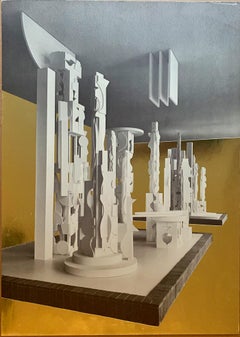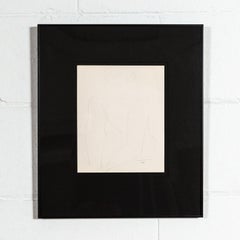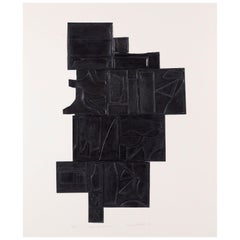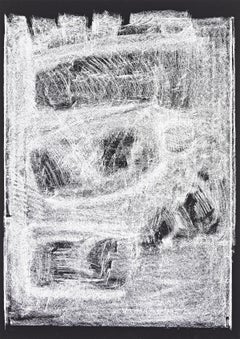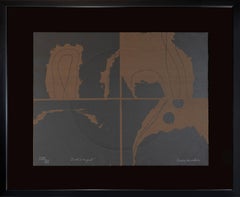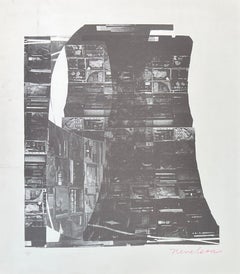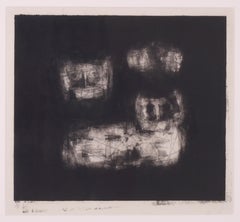Louise Nevelson
Louise Nevelson was one of the leading American female sculptors of the 20th century, and she did it on her own terms. She was a pioneer of installation art and created large-scale monochromatic sculptures that are today known for their provocative, compartmentalized forms. While her assemblages involved a range of materials, she is best known for her wooden sculptures. Working in a single color was her signature, and all-encompassing color demanded an all-encompassing focus for this artist — she even kept separate studios for work in black, white and gold.
Nevelson was born in what is now Ukraine in 1899 and emigrated to the United States with her family in 1905. She moved to New York City as a young woman in 1920 to study at the Art Students League. In the 1930s, Nevelson traveled around Europe, came into contact with the works of Picasso, studied with Hans Hofmann and assisted Diego Rivera in New York City.
Nevelson had her first solo show in 1941 at the Nierendorf Gallery in New York. In the late 1940s, she studied with Stanley William Hayter and worked as a ceramicist in the workshop of revered furniture designer Vladimir Kagan, who let her take scraps from the factory to use in her sculptures. (As a child, Nevelson had also worked with discarded wood from her father's lumber yard.)
By the early 1950s, Nevelson had traveled to Guatemala and Mexico. She was inspired by pre-Columbian art and the totemic works of ancient cultures. Nevelson began creating the first of her iconic wood sculptures and later participated in the legendary “Sixteen Americans” exhibition at the Museum of Modern Art. Her work was acquired by prominent institutions in the years that followed.
Nevelson made reliefs in shadow boxes and was for a time affiliated with New York City’s Sidney Janis Gallery as its first female Abstract Expressionist artist (her work was abstract but she also drew on the Cubist and Constructivist movements). In the early 1960s, Nevelson showed her art in Chicago, Manhattan, Paris and West Germany. It was around this time that she exhibited at Pace Gallery in Boston and New York. The gallery represented her for the duration of her career.
Nevelson died in 1988, but her legacy is immense. Her work is held in virtually every major American art museum, including the Museum of Modern Art, the Metropolitan Museum of Art, the Los Angeles County Museum of Art and the National Gallery of Art. Her permanent large-scale public sculptures are installed all over the country, including in Louise Nevelson Plaza in New York City's Financial District.
On 1stDibs, find original Louise Nevelson sculptures, prints and drawings.
| Average Sold Price |
| $4,220 |
| Styles |
| Materials |
| Related Artists |
1970s Abstract Louise Nevelson
Foil
1930s Modern Louise Nevelson
Ink, Pencil, Paper
1970s Abstract Louise Nevelson
Woodcut
1970s Modern Louise Nevelson
Color, Screen
1980s Abstract Louise Nevelson
Screen
1960s Abstract Expressionist Louise Nevelson
Lithograph
1960s Abstract Louise Nevelson
Paper, Screen
1950s Abstract Louise Nevelson
Etching
Louise Nevelson Sale Prices
| Sold Date | Sold Price | Category | Medium | Creation Year | ||||||||||||||||||||||||||||||||||||
|
| $4,220 |
Average sold price of items in the past 12 months |
| $526-$15,000 |
| Sold price range of items in the past 12 months |
Artists Similar to Louise Nevelson
Louise Nevelson art for sale on 1stDibs.
- 1stDibs ExpertMarch 22, 2022Some of Louise Nevelson's sculptures were called environments. These collage-like walls consisted of wooden boxes filled with found objects. Some of her most famous environments include the Black Wall from 1959 and The Great Wall from 1970. Find a selection of Louise Nevelson art on 1stDibs.
- 1stDibs ExpertApril 5, 2022Louise Nevelson is best known for her work creating wooden structures and sculptures. However, she also explored using plexiglass, aluminum and steel in her art. Her work is considered fundamental to the history of Feminist art and has challenged the stereotype of the male sculptor, solidifying her place in art history. Shop a selection of Louise Nevelson pieces from some of the world’s top art dealers on 1stDibs.
- 1stDibs ExpertApril 5, 2022Louise Nevelson used found wooden forms and made sculptures in steel, aluminum, plexiglass and other materials. Her artistic journey often featured wood, as she found it fascinating, but she added plastics and formica in the 1960s. In the 1970s she began to work on a gigantic scale with aluminum and steel. Shop a selection of Louise Nevelson pieces from some of the world’s top art dealers on 1stDibs.
